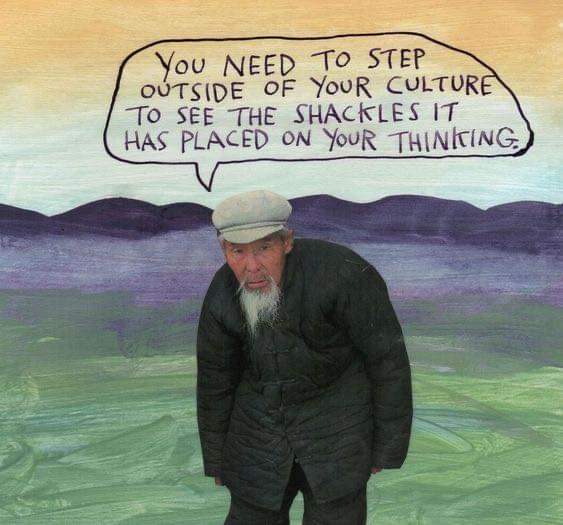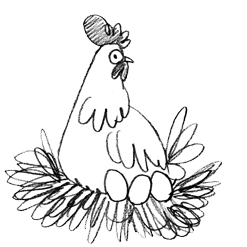Capitalism’s invisible hand has always relied on hidden data. In the digital age, that data is metadata the overlooked, under-the-hood information that tells us who, where, when, how often, and what next. It doesn’t matter what you say or do if someone else controls the context around it. That’s where the power lies. Let’s be clear: the battle for metadata is the battle for the future.

Three Broken Paths
Capitalism: Metadata is hoarded by the #dotcons. Google, Meta, TikTok—they thrive on extracting context from your every click. It’s not about what you say, but what your patterns say about you. They sell this to advertisers, to governments, to anyone with enough cash. Capital controls metadata, metadata controls behaviour, and behaviour keeps the system in place. This is the tech-feudalism of today—soft fascism in algorithmic form.
Chinese Communism: Here, the state doesn’t outsource metadata - it gathers it centralisis it. Then Social credit systems finds people as patterns and use this to reshape disfuctional paths. The state controls metadata, metadata controls capitalism. It’s the digitised return of the "command" economy.
Liberalism: Wants to privatise metadata to the individual, to revive the mythical free market of rational actors with perfect information. But this is a fantasy—metadata’s power comes from aggregation, and no individual can match corporate or state capacity to hoard it. The liberal path leads to a more blinded, slightly less abusive cage.Anarchism and the Commons: A Fourth Way
What does anarchism want? It wants the social conditions for free association. It wants autonomy, not just individual, but community autonomy. The #4opens and the #OMN (Open Media Network) are an explicit political project to create this.
- Open data: everyone can see and use.
- Open metadata: the tail behind the content, telling you where it came from and how it’s been passed around.
- Open process: how decisions are made is visible and changeable.
- Open code: tools are modifiable and forkable.
The #OMN doesn’t pretend metadata isn’t powerful, it’s built around that power. But instead of hiding it, it makes that power visible, shared, and accountable. We’re not encrypting metadata into irrelevance. We’re composting it into trust.
Commons vs. the market, capitalism uses metadata to target, extract, and sell. We use metadata to share, trust, and build. The #OMN is a radical shift to replace the market with metadata commons. In capitalism, knowledge is hoarded for advantage. In the commons, it is shared for coordination. The market’s “invisible hand” becomes the commons’ visible knowledge, messy, partial, human, but rooted in mutual aid, not profit.
Hard vs. soft power, the #OMN doesn’t rely on cryptographic “hard” security. It builds “soft” trust:
- You don’t need perfect encryption, you need networks of relationships that resist capture.
- You don’t need top-down control, you need reputation, memory, and care.
- It’s not about preventing all bad things, it’s about making good things easier to grow, and bad things harder to spread.
Yes, if the state turns fascist, they’ll try to use metadata against us. But they already do. The #OMN doesn’t pretend in any way to offer perfect protection. What it does offer is a head start in building the infrastructure for resistance, before the rubber truncheons arrive.
This matters, metadata will happen, no matter what you do, you can’t opt out, you can only choose where the power flows:
Capitalists?
States?
Individuals?
Or communities?
We choose the commons.And we make this chose, not in theory, but in practice. We’re building systems that work today, in browsers, on the streets, and in activist circles. This isn’t just tech, it’s a strategy, a shovel for the compost, a way to make new life from the old system’s rot.
What Should We Do With Metadata? A Post-Capitalist Path via #OMN
We’re in a global metadata arms race, and most people don’t even know the stakes.
- Capitalism wants metadata privatized – hoarded by #dotcons to manipulate markets and politics. This power now controls the state. Welcome back, fascism.
- Authoritarianism (like China’s digital state) wants metadata centralized, state-controlled to command capitalism itself. The command economy returns, just digitized.
- Liberalism wants metadata individualized, a libertarian dream of sovereign users and self-determined markets, it still leans into myths of meritocracy and fails to balance collective power.
But what if we chose a fourth path? Anarchism, grounded in voluntary association, mutual aid, and decentralization, this is the path #OMN walks. Using #4opens, we’re attempting a #KISS trust-based, commons-driven model for metadata.
The Commons of Metadata. In the #OMN (Open Media Network), metadata isn’t hidden or monetized. It’s open, trusted, and functional, a new kind of commons. This visibility becomes the replacement for capitalism’s “invisible hand.”
We don’t sell metadata, we use it to replace the market, we organize with it, not exploit it. Metadata flows become signals of trust and connection. Shaping what gets seen, valued, and shared. It’s post-capitalist infrastructure based on visibility, not secrecy.
How it works: A trust-based metadata flow, a simplified trust model for content flows:
- Link – I find your flow useful.
- Trust – We’ve got a relationship.
- Moderate – Let’s build that relationship.
- Rollback – Something went wrong, undo it.
- Unlink – This isn’t working.
We don’t just trust blindly, metadata lets us query the trust network, ow many people I trust also trust this? Is this source consistently reliable? What do community tag say about this? This keeps quality high, even when bad actors appear. If necessary: unlink, rollback, move on.
What About Surveillance and Security? We’re honest: the #OMN network can’t protect you from a fascist state. No tech can, but we can use pseudonymity with known-good peers. Whisper in the forest before posting. Protect sources while keeping distribution open.
Use P2P crypto for the 20% of cases that need it – not the 80% that don’t. Unlike the #encryptionists or #geekproblem crowd, we’re not building bunkers. We’re planting gardens.
Why It Matters – If metadata is the new currency, then open metadata is the new commons. Capitalism runs on closed systems – the #OMN runs on shared knowledge and decentralized trust.
This isn’t about perfect tech. It’s about human-scale trust, community autonomy, fast, messy, democratic distribution and real-world resilience. It’s not utopia. It’s compost and we’ve got the shovels.
The current media environment is heavily skewed towards establishment interests, making it difficult for progressive movements to gain any traction.
Why We Need the Open Media Network (#OMN)




